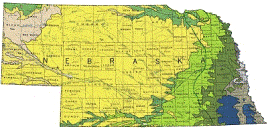United States Geological Survey

United States Geological Survey: Staff Publications
Document Type
Article
Date of this Version
1998
Citation
Comparative Biochemistry and Physiology Part C 120 (1998) 405–414
Abstract
We investigated the regulation of the muscarinic cholinergic receptor (MChR) in brain from seven species of fish, two surrogates and five threatened or endangered species exposed to a series of chemicals as a measure of compensatory response among species. Fish were classified as either cold water (rainbow trout-surrogate, apache trout, lahanton trout) or warm water (fathead minnow-surrogate, razorback sucker, bonytail chub, colorado squawfish) and were exposed to chemicals shown to affect cholinergic pathways (carbaryl and permethrin) and two chemicals whose relationships to the cholinergic system is less clear (4-nonylphenol and copper). Downregulation of MChR occurred in all warm water species, except Colorado squawfish, and at carbaryl concentrations similar to those causing down regulation observed in rainbow trout. Permethrin exposure resulted in down regulation in fathead minnow and razorback sucker, but the concentrations required for observation of this phenomenon were much greater than observed in cold water species. Copper exposure caused a decrease in brain MChR in rainbow trout and apache trout, whereas 4-nonylphenol exposure resulted in a decrease in brain MChR in all three cold water species. Our results indicate that surrogates are useful in assessing sublethal physiological responses to chemicals with a known mechanism of action such as carbaryl and support use of surrogates for assessing physiological responses to chemicals with diverse, less clear mechanisms of action.

